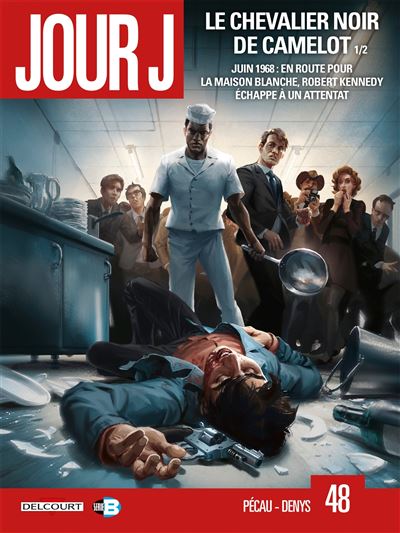With his latest novel, Xavier-Marie Garcette takes us into the France of the first half of the twentieth century. And to discover this period of unbridled creativity, what better guide than one of the most renowned artists of the time, the famous composer Francis Poulenc? A half-devout, half-rogue man whose ambivalence perfectly illustrates the complexity and genius of that era, and whose thrilling life is enough to make him a wonderful romantic hero. Interview of the author during his press presentation at the bookstore big hug in Paris. Why did you choose to tell the story of composer Francis Poulenc? I first discovered his work and I was enthusiastic about his chamber music, which I find both charming and, if you listen carefully, full of humour. A humor that we feel is the elegance behind which the great melancholic hide. That's what appealed to me. And, moreover, I moved at that time near Rocamadour, of which Poulenc is one of the tutelary figures. You tell the story of the French composer with great historical rigor, what is the biographical part and the fictionalized part in your novel? At first, I had imagined that I could be content with fairly general biographical information and that I could use my imagination as a novelist on this. But very quickly I realized that it did not work because I did not want to betray the character. I wanted to understand him, to identify him, to get as close as possible to his personality, and God knows that it is complex. And then, we always say that reality exceeds fiction, it's so true here. Poulenc's life could not be more incredible. So I read biographies, and I especially had access to all his correspondence, which is a real gold mine. But all these biographical elements do not tell the whole story. It's my role as a novelist to plug the holes. And that's what was exciting, trying to understand what might have happened. Is it easier to write about a character who really existed, whose life is already mapped out? It's probably easier to have a plot and at the same time it's also more restrictive because I could not take my hero anywhere according to my imagination. But ultimately it is not fundamentally different. Whether it's a real character or an imaginary character, sometimes even in a very real context like the hero of my last historical novel, the approach is the same: meet someone. And therefore to try to understand in depth the person. Besides the fact that he was a great artist, Poulenc fascinates by his duality: half-scoundrel half-devotee. Did that make him a perfect character for writing novels? Poulenc is fascinating and that helps as a novelist, because the material is rich. At the same time, it is still very complicated. It's absolutely amazing how everything and the opposite of everything he is. He loves Paris and he loves the countryside. He is hyper worldly and he loves the atmospheres of popular balls. And that's for everything. And so finally, it always takes us on the wrong foot. It's fascinating to try to understand someone who is so apart. And then he is someone extremely endearing, despite his unbearable sides, he is hypochondriac, egocentric but he is also adorable, he is incredibly candor and is incapable of malice. Another duality that emerges very clearly in your book is the opposition between town and country. Is this something you really found in your research on Poulenc's life? On the one hand the countryside evokes purity, on the other Paris is the place of all excesses. In his correspondence, he speaks of "his Parisian sexuality". It's amazing as a formula but it's very, very revealing of the way his personality is structured. He refuses to choose one side or the other, he wants to be half angel half demon, but for that he compartmentalizes his two lives and he is torn between the two. How do you explain this astonishing religious revelation during his first visit to the black virgin of Rocamadour? We know stories of conversion. It's happened to a lot of famous people. Conversions always mark a break. But at the limit, at Poulenc, it is surprising that it is not more marked. With Religion, it is a whole other dimension that opens up to him, it is felt very strongly in his inspiration. It is a new man who discovers himself, who reveals himself. He is no less tortured. Curiously, from a kind of existential anguish that inhabits him before, we move to a very strong religious conviction that anchors him in a reassuring faith but which also leads to an imbalance given his private life, his sexuality. Being a monk and a rogue at the same time is still complicated to live! Far from falling into mechanical and boring narration, this biography, masterfully led by Xavier-Marie Garcette, captivates and keeps its readers in suspense. A fascinating dive into the colorful life of Francis Poulenc who, through his escapades, his moods and his great humanity, immediately arouses attachment.
© Just Focus - 2024 Politique de confidentialite







































